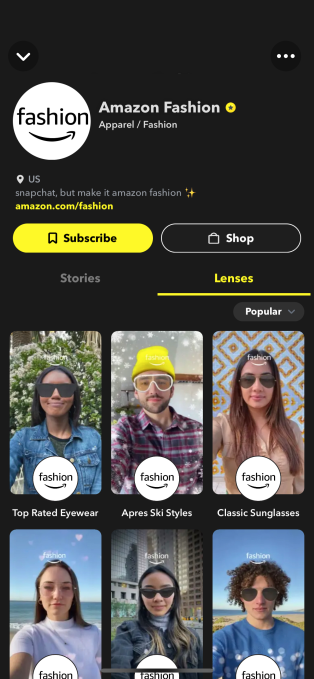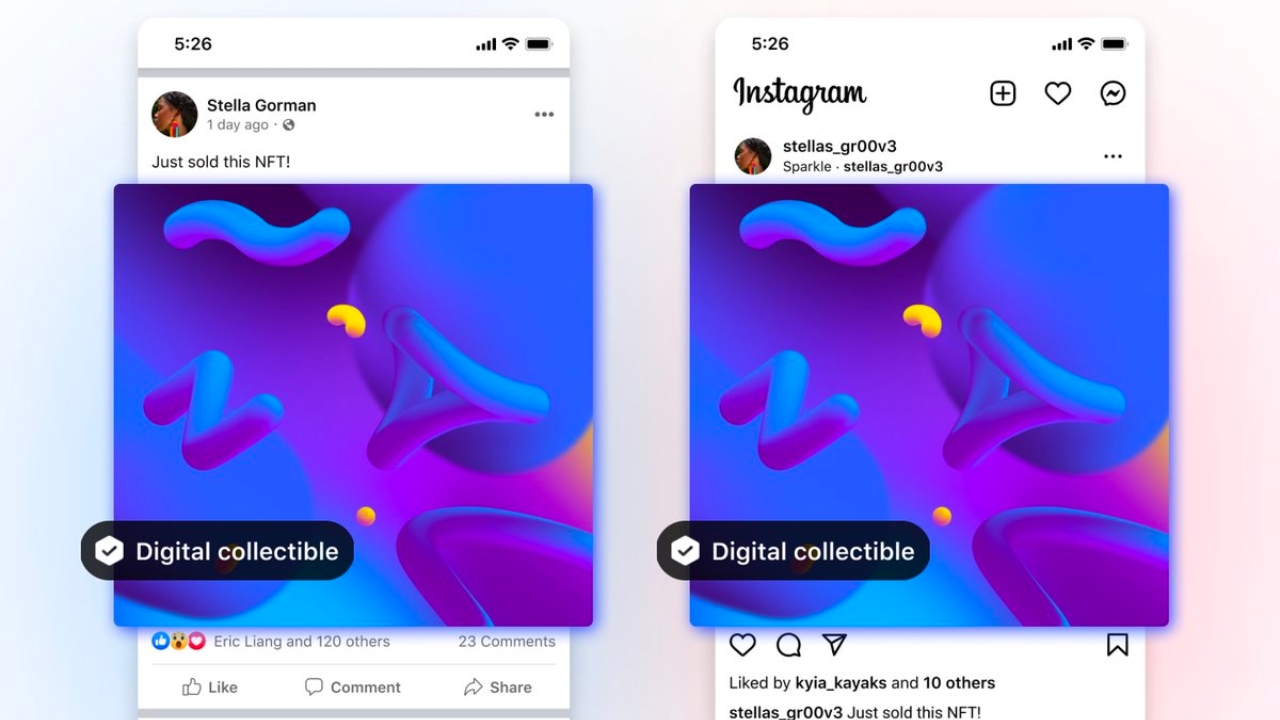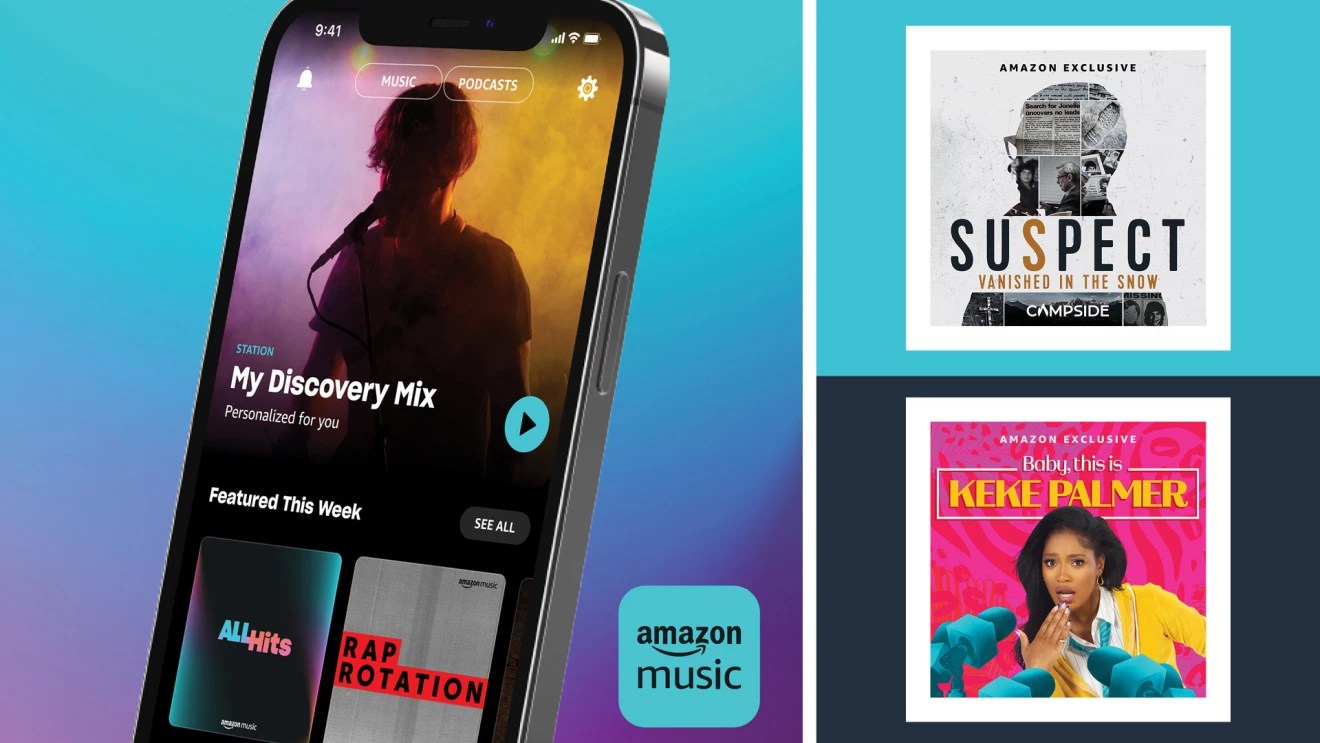[ad_1]
Welcome back to This Week in Apps, the weekly TechCrunch series that recaps the latest in mobile OS news, mobile applications and the overall app economy.
Global app spending reached $65 billion in the first half of 2022, up only slightly from the $64.4 billion during the same period in 2021, as hypergrowth fueled by the pandemic has decreased. But overall, the app economy is continuing to grow, having produced a record number of downloads and consumer spending across both the iOS and Google Play stores combined in 2021, according to the latest year-end reports. Global spending across iOS and Google Play last year was $133 billion, and consumers downloaded 143.6 billion apps.
This Week in Apps offers a way to keep up with this fast-moving industry in one place, with the latest from the world of apps, including news, updates, startup fundings, mergers and acquisitions, and much more.
Do you want This Week in Apps in your inbox every Saturday? Sign up here: techcrunch.com/newsletters
Twitter is dying, long live Twitter?
Has it really only been a week since Elon Musk bought Twitter? It seems like a lifetime.
The Tesla and SpaceX exec has wasted no time making the bird app his own, beginning with the almost immediate layoffs of the Twitter executive team, including CEO Parag Agrawal, CFO Ned Segal, General Counsel Sean Edgett and Head of Legal Policy, Trust and Safety Vijaya Gadde, before moving on to cut upper management, and then the widespread layoffs of staff. (Which he’s now being sued over, in fact, as the required 60 days legal notice wasn’t given.) Twitter is expected to cut 50% of its staff, or some 3,700 jobs.
The roles being cut span areas large and small, from the mission-critical moderation, trust & safety, ethical AI and curation teams — just ahead of a major election, worryingly — as well as those working on more experimental features, like Communities, and in all sorts of business and tech areas like marketing, sales, policy, research, partnerships, accessibility, data science, machine learning, social good, communications and more, including core engineering. Twitter’s Developer Platform lead is out and the developer conference Chirp was also canceled.
Advertisers are growing worried about what the significant job cuts in key areas mean for brand safety and began putting their campaigns on pause until they know how this all shakes out. Twitter’s chief customer officer, Sarah Personette, who managed the company’s relationships with advertisers, also departed last Friday as a result of the takeover. Musk, of course, blames “activist groups” pressure for the advertiser situation and not his own actions.
The Twitter product is also rapidly undergoing a change, as Musk plans to cut new features like Revue and Notes, and revamp the Twitter Blue subscription to make the blue check now a paid feature. He’s also been thinking about rebooting Vine.
To say the changes are coming at a chaotic pace is an understatement. Employees were let go via emails and often still working when suddenly their access to Twitter’s internal resources was cut. (Not being able to log in was a clue to go check their personal email to find out if their job was eliminated.)
Musk never communicated with staff before the layoffs, reports said. But his message, nonetheless was clear: Twitter is being reformed and it’s not going to be the same place it was ever again. The question now is, will users stay for it?
Mastodon benefits from the Twitter exodus
As it turns out, some people decided they won’t be sticking around for whatever Twitter is turning into.
The open source, decentralized social network Mastodon is one platform that has benefitted from the Twitter takeover. In addition to seeing a record number of downloads for the Mastodon mobile app this past weekend, the nonprofit company also this week announced a new milestone. In a post on Twitter — where Mastodon has been successfully marketing its app to those now considering leaving the service — it noted that 230,000 people have joined Mastodon during the last week alone. Thanks to these new sign-ups, as well as people returning to old accounts they had set up previously, the network now has 655,000 active users, the post said.
This is the highest number of users Mastodon has seen to date and follows on news that the network had gained over 70,000 new sign-ups on Friday, October 28 — the day after Musk’s deal to acquire Twitter had closed. From Friday through Sunday, the Mastodon mobile app also saw around 91,000 new installs, third-party data from Sensor Tower indicated — a 658% increase from the 12,000 installs it saw the three days prior.
This rapid growth had some downsides as the largest service mastodon.social experienced lags and outages due to the sudden influx of new users. Plus, some users came to Mastodon without a full understanding of how a decentralized social network works and have found the process confusing or overly technical. They may have already given up and moved on to another platform, despite how this week was the prime opportunity to convince them of decentralization’s perks — like how Mastodon can’t be sold to a person like Musk.
Soon, another decentralized social app will come for Twitter’s user base. Twitter co-founder and former CEO Jack Dorsey is launching Bluesky, a decentralized social protocol and app that intends to build a Twitter-like product in a different way. But the open source community has been frustrated with the Silicon Valley exec’s decision to go his own way with Bluesky, instead of using established protocols like ActivityPub, which powers Mastodon and others.
Then there’s the fact that @Jack sold Twitter to Musk to begin with, so would anyone ever trust him again?
Substack takes aim at Twitter, too
Another company hoping to capitalize on Twitter’s upheaval is the newsletter platform Substack. The company openly targeted Twitter’s user base over the past few days and then threw its hat into the ring as a more direct competitor with the launch of a new feature, Substack Chat. This addition allows Substack writers to communicate directly with their most avid and loyal readers right in the Substack mobile app.
With Chat, Substack is not only taking on Twitter, where many back-and-forth threaded discussions between writers and readers already take place, but also other online communities where writers have been building out networks of their own, like Discord, Slack and Telegram.
The company says the new Chat feature will eliminate the need for its writers to “frankenstein together different software tools and cross-reference subscriber lists,” its announcement read.
Chat is not a Twitter clone by any means — though there is overlap with how writers have used Twitter in the past.
For starters, the Chat feature will be opt-in, meaning not every newsletter may have chats enabled at this time. Publications will have to first enable the feature on their Settings page or by simply starting a new thread in the Substack app. The user interface is also not a timeline to scroll, but resembles a traditional chat app.
However, the launch could relocate some of the discussions that would have normally taken place on Twitter to a more private networking space going forward.
WhatsApp launches Communities
WhatsApp this week officially launched Communities, the new feature offering larger, more structured discussion groups that first entered into testing earlier this year. Designed to help organizations, clubs, schools and other private groups better communicate and stay organized, Communities bring a number of new features to the messaging platform, including admin controls, support for sub-groups and announcement groups, 32-person voice and video calls, larger-file sharing, emoji reactions and polls.
Communities themselves can support groups of up to 1,024 users and offer end-to-end encryption.
Some of the features developed for Communities, like emoji reactions, large-file sharing (up to 2GB) and the ability for admins to delete messages, had already made their way to the WhatsApp platform ahead of today’s launch. Now, the company says polls, 32-person video calls and larger group sizes will also be supported on WhatsApp more broadly outside of Communities.
At launch, group admins will have the option to move their group to a Community if they choose. The feature will reach the wider WhatsApp user base worldwide over the next few months, on both Android and iOS.
Platforms: Google
- Google announced a revamp of the Google Play Store that will impact Android apps’ discoverability, how developers can market their apps to consumers and various trust and safety concerns. Of note, Google is advising developers that the Play Store will begin to prioritize apps that deliver on both technical and in-app quality by promoting them in more places across the Play Store where they can be discovered by consumers. It’s also rolling out new tools to reacquire churned users and help developers better handle coordinated attacks on their app ratings and reviews.
E-commerce
- Google Search added new shopping features ahead of the holiday season. The company will now flag promotions and discounts, and add features like coupon clipping, deal comparisons, price insights and more. The features should become available on mobile, including the Google app.
- Etsy launched an image search feature on iOS. The new addition allows you to use images to search the app’s marketplace of 5.3 million sellers.
Augmented Reality

Image Credits: Meta
- Instagram launched a collaboration with Art d’Egypte to release 11 AR filters on the app highlighting the “Forever is Now II” exhibition at the Pyramids of Giza. The exhibition displays artwork and installations by artists including French artist JR, Egyptian sculptor Ahmed Karaly, Italian artist Emilio Ferro and French-Tunisian graffiti artist el Seed, as well as an immersive experience of art set against the backdrop of the Pyramids of Giza. The filters feature a guide, an animated cat inspired by the ancient Egyptian deity Bastet, who accompanies users as they explore each art piece and its creation through immersive videos, images and illustrations powered by AR technology.
- Snapchat and Amazon partnered on AR Lenses for eyewear. Amazon Fashion launched shopping Lenses for eyewear brands including Maui Jim, Persol, Oakley, Ray-Ban, Costa Del Mar and others that Snapchat users can virtually try on using AR technology, then purchase if they like what they see.

Image Credits: Snap/Amazon
Fintech
- Robinhood reported a decline in revenue in Q3 with a 1% YoY drop to $361 million instead of the estimated $357.8 million. Net loss was down 87% to $175 million and MAUs were down 1.8 million on a quarterly basis to 12.2 million as of September 2022.
- Digital banking app Chime began cutting costs, including a 12% staff reduction, or around 160 people.
- Investing app Public announced it’s expanding globally in 2023. Global investors will be able to convert their local currency into the U.S. dollar and invest across thousands of assets, the company said.
- Police and other sources said Block’s Cash App has become a popular tool for adult and child sex traffickers due to lax monitoring, Forbes reported.
- PayPal and Venmo added Tap to Pay on iPhone, plus support for Apple Pay for its branded debit and credit cards, Apple Pay as a payment option in checkout flows and support for the Wallet app. In Q3, PayPal reported revenue up 12% YoY to $6.8 billion, roughly in line with the $6.81 billion expected, and payments volume up 14% YoY to $337 billion under the $343.2 billion expected. The stock dropped over 8% due to a trimmed forecast for annual revenue.
Social

Image Credits: Meta
- Instagram is adding the ability for creators to make and sell NFTs directly in its app using traditional in-app purchases. Polygon is the first partner that Meta has chosen for this feature. The company will not take a cut of revenues while the feature is testing with a group of creators in the U.S.
- Instagram also added support for the Solana blockchain and Phantom wallet, expanded access to subscriptions to all U.S. creators and introduced gifts on Instagram Reels.
- Facebook expanded “professional mode” to allow all creators worldwide to earn money from its various monetization programs, including Reels Play bonuses and subscriptions.
- Facebook also increased access to Stars, added Stars Party community challenges to Reels, and started testing automatic onboarding for creators.
- Meta announced it will stop using human editors to curate articles for its Facebook News offering in all markets and will instead rely on algorithms. (That sounds familiar.)
- Reddit is experimenting with a new feature that will show you how many people are hanging out in a Live Chat in real time, as well as a new “Happening Now” page where you can see which Live Chats and Reddit Talks are active.
- Truth Social now has more unique visitors than other right-wing apps, including Gab, Parler and Gettr, largely in part to Trump’s posts, The NYT reported.
Photos
- Google is adding a limited version of the Imagen text-to-image generator to its AI Test Kitchen app, which will allow users to try out new interactions called “City Dreamer” and “Wobble” for designing cities around a theme or making little monsters, respectively. The app is not yet available to the public.
- Cross-platform app Darkroom got a major update that includes highlight and shadow recovery to allow users to make the most of the ProRAW files captured by the latest-generation iPhones. It also added Preset Sharing and new sliders for Exposure, Whites, Highlights, Shadows and Blacks.
Messaging
- Telegram removed a feature that let iOS users create pay-to-view posts, which creators were selling access to through third-party payments or donation bots, citing Apple’s App Store Rules. Apple’s policies don’t allow for third-party payment processors and require developers to pay up to a 30% commission on in-app purchases.
Dating
- Match Group beat on earnings with Q3 revenue up 1% YoY to $810 million, above the $793 million estimated. Paying users were up 2% YoY to 16.5 million, and the stock climbed 15+% on the news. The company said in 2023 it would invest in Hinge, The League and two new apps targeting specific demographics.
Streaming & Entertainment

Image Credits: Amazon
- Amazon rolled out a new benefit for its Prime members with the addition of a full music catalog with 100 million songs, instead of the previously more limited selection of just 2 million songs. It will also make most of the top podcasts on its service available without ads, and added a “Podcast Previews” feature to its Music app that allows customers to listen to short clips as a way to discover new podcasts they may like. Users can still upgrade to on-demand music as before with Amazon Music Unlimited.
- Disney+ expanded into e-commerce. The streaming service introduced a new subscriber perk that offers early access to select merchandise associated with brands like Star Wars, Marvel, Disney Animation Studios and Pixar. Subscribers will see the merch listed on the detail pages of select movies, shorts and TV shows on the service. They can then hold up their phone to scan a QR code to buy the items or they can visit the website directly and authenticate with their Disney+ credentials.
- YouTube rolled out Primetime Channels in the U.S. The video platform partnered with 35 streamers, including Paramount+, Showtime, Epix, Starz, AMC+ and others, which can be found in the Movies & Shows hub.
- Clubhouse added support for background music and sound reactions to its audio streaming platform.
- Newly added references to a “TikTok Music” service have appeared in the code of the Resso streaming app, owned by TikTok’s parent ByteDance. The code appears to suggest that user activity may sync between the Resso app and TikTok Music, and specifically refers to a “music.tiktok.com” URL. The company has also set up social accounts for TikTok Music, signaling a possible Resso rebrand and expansion.
Gaming
- Google expanded its Google Play Games beta for PC to the U.S., and seven other countries, including Canada, Mexico, Brazil, Indonesia, the Phillippines, Malaysia and Singapore. The service offers 85 Android games that can be played on Windows PCs. Over the last couple of months Google added popular titles like “1945 Air Force,” “Blade Idle,” “Cookie Run: Kingdom” and “Evony: The King’s Return” among others.
Travel & Transportation
- Uber beat in Q3 with revenue up 72% YoY to $8.34 billion, above estimates of $8.1 billion. Gross bookings were up 26% YoY to $29.1 billion, which included $13.7 billion from Uber Eats.
- Uber also began annoying its users with unsolicited push notification ads this week. Beginning last weekend, people began complaining about the notification-based ads, which included those for non-Uber businesses, like Peloton. Users said the notifications were being sent out when they weren’t even engaging with the Uber app itself. Uber claimed it was a limited test and noted people could turn off the notifications in the app if they didn’t like the ads.
Utilities
- Google announced new parental controls for its Google Assistant platform. The new features will roll out over the next several weeks to Google Home, as well as the Family Link and Google Assistant apps on iOS and Android, and will allow parents to limit or even entirely disable certain Assistant functionality, like calls, configure kid-friendly settings, adjust downtime and more. The settings will also let parents configure default services, limit what sort of answers they can get from the Assistant, and introduce new kid-friendly new voices.
- Google will shut down its Street View app for iOS and Android in 2023. The app had allowed users to contribute their own 360-degree imagery to Street View.
Government & Policy
- The U.S Federal Trade Commission filed a complaint against homework helper app Chegg for its security lapses that saw the personal information and password of around 40 million users stolen in 2018. The FTC’s order requires Chegg to strengthen security safeguards, offer consumers an easy way to delete their data and limit information collection on the front end. Chegg said it would comply.
- Google indefinitely paused enforcement of its Google Play Store’s billing policy in India following an order by the country’s antitrust body that ordered the company to stop restricting developers from using third-party payment processing services for in-app purchases and buying apps. The Competition Commission of India also fined Google $113 million for abusing the dominant position of its Play Store in the country.
- TikTok will update its privacy policy on December 2 to allow staff outside of Europe, including staff in China, permission to access data belonging to EU users. The change was announced months ahead of a drafted decision into a year-long investigation into the platform’s data exports to china under the GDPR.
Security & Privacy
- Malwarebytes reported four apps listed by the developer Mobile apps Group contained known malware that’s used to steal users’ information. The apps were listed on the Play Store as of the time of the reporting on Tuesday.
? Google acquired AI avatar startup Alter for around $100 million. The company helped creators and brands express their virtual identities. Does Google have Memoji ambitions? Alter began its life as Facemoji, a platform offering tech that allowed game and app developers to put avatar systems into their apps.
? Netflix acquired the Seattle-based game developer Spry Fox for an undisclosed sum as part of its mobile gaming push. This is now the company’s sixth in-house studio, after earlier acquisitions, which have included Next Games, Night School Studio and Boss Fight Entertainment. The game developer, founded in 2010, is known for popular titles like “Triple Town,” “Alphabear” and “Cozy Grove.”
? Digital gifting app Givingli raised $10 million in Series A funding led by Reddit co-founder Alexis Ohanian’s VC firm, Seven Seven Six. The app offers e-cards and e-gifts than can be shared on email, text and social media, and is also integrated with Snapchat as of 2020.
[ad_2]
Source link

